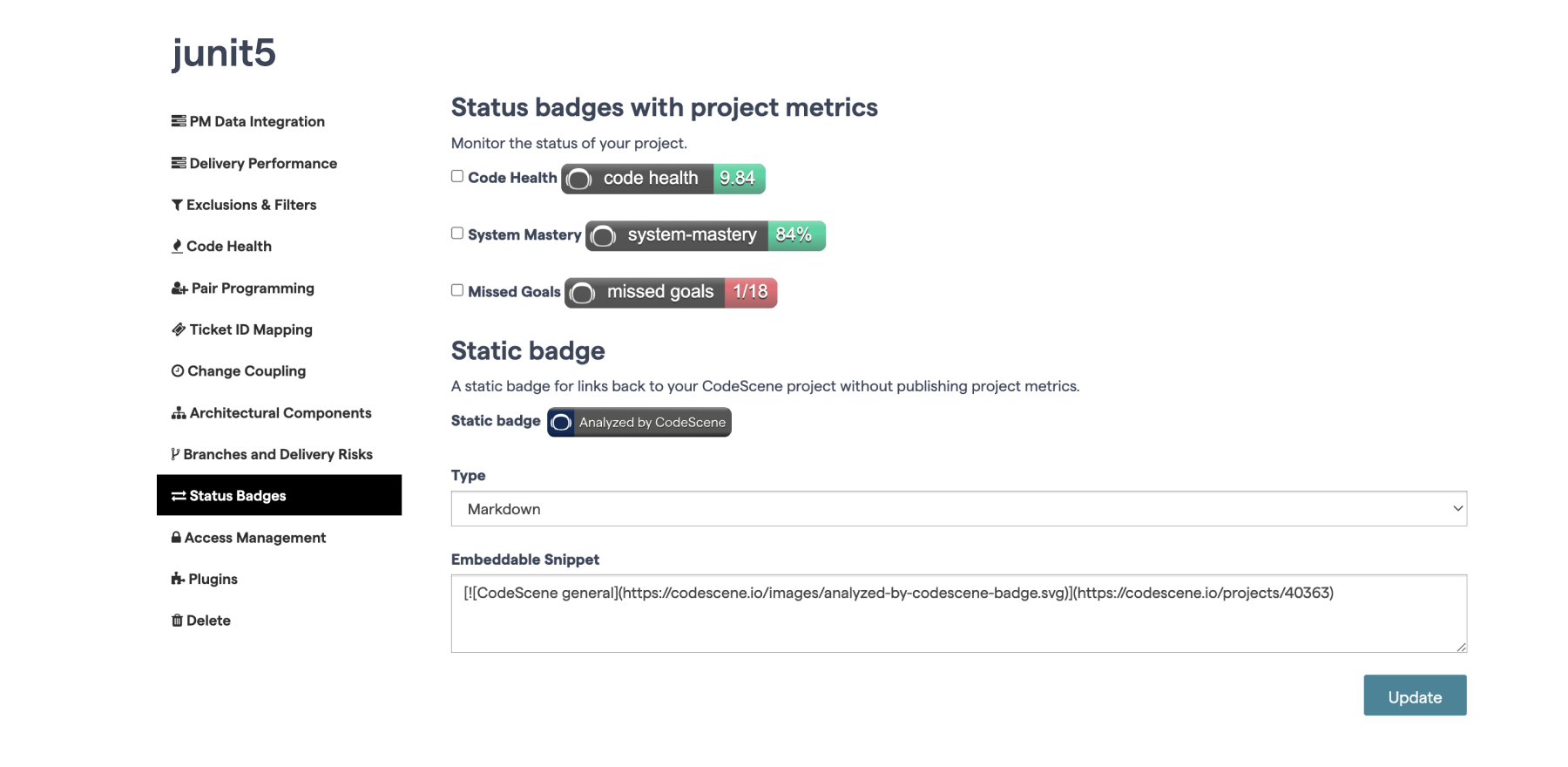Keep Tabs on the State of your Code with Badges¶
Status badges allow your teams to keep an eye on the health of their projects and their individual architectural components at a glance. They can be integrated into any tool, but are most frequently embedded on GitHub’s README pages.
CodeScene auto-generates the badges and the links for you.
Types of Badges¶
CodeScene currently supports badges for the following metrics:
Average Code Health¶
The Average Code Health status badge:

Fig. 162 The average code health calculated from all scoreable files in the project.¶
Hotspot Code Health¶
The Hotspot Code Health status badge:

Fig. 163 The code health of the most active files in the project.¶
System Mastery¶
The System Mastery status badge:

Fig. 164 Keep track of knowledge loss when developers leave the project.¶
Missed Goals¶
The Missed Goals status badge:

Fig. 165 The status of your project goals.¶
Configuration¶
Status badges can be activated on a per-project and per-metric basis in the “Status Badges” configuration tab.
In addition to project-level badges, the Average Code Health and System Mastery badges can also be shown for individual architectural components in the project. These badges are activated using the same checkbox that activates the project-level badge and their URLs can be obtained by selecting component name from the drop-down menu on the configuration screen.
Embedding¶
CodeScene’s status badges can be embedded anywhere, as long as a network connection to the CodeScene service is available.
HTML and Markdown snippets are available on the “Status Badge” configuration page when you select a badge type:

Fig. 166 CodeScene generates markup and HTML for status badges.¶
Security¶
When they are activated, CodeScene’s status badges are public. Users who are not logged in to CodeScene will still be able to see be able to see the badges. This is why badges are opt-in.
Activating a badge does not expose any other data besides the SVG image itself.